- Home
- M G Vassanji
Uhuru Street Page 7
Uhuru Street Read online
Page 7
A faint sound came from behind her: a child’s voice, a spoon scraping.
‘We want to see the mama of the house,’ said Kanji, a little hesitantly, as if asking permission. The others were silent, behind him.
The ayah heaved and stepped sideways in one motion, a block partition yielding, and they saw her, the second woman, at the head of the long table slurping at her tea, playing with her spoon. She looked young and old. Her face was smooth and pink, her hands delicate and small; her hair was long and dishevelled and fell in grey and white streams around her face to the table and the cup and saucer. Her front teeth were missing.
‘Wha’ you wan’?’ she said. It was the voice of a crone. ‘Professor … he gone …’ Then she broke into a language none of them understood.
Lalji let out an involuntary grunt, like a muffled sob; then he forced a brief and nervous giggle. Kanji, in front of him, took a deep breath and stepped back, pushing them all out, and closed the door behind him.
The next morning Stuart strode into class as usual. There were no more formal lessons these last days of the year and the affairs of the school were finally winding down amidst rising excitement and impatience. The mood infected one and all. There was even a trace of levity on the usually scowling face, but the quiet that confronted him caught him by surprise and he looked up as he went to the blackboard to place the cane on the chalk tray.
There was something taped on the blackboard which drew his notice mid-stride. It brought his head up with a jerk. It was the cover from a paperback edition of She. It showed in garish colours an ogre-like woman. Under it someone had scribbled in chalk: ‘SHE WHO MUST BE LOVED!’ Beneath that someone else had added for extra effect: ‘Frankenstein’s monster!’ in a strangely uneven hand.
Stuart turned slowly to face them: behind the sternness this time traces of his pain.
The Sounds of the Night
Yes, I would say for many weeks after, I have seen Satan. I have seen the face of Azazil. And at what other time than the quiet stillness of that deepest point of night, at four, when the spirits take dominion and most men sleep; only a few hardy souls venture out to seek the eternal. At that hour there are no cars on the road, no bicycles. The breeze has not started to blow and the air feels dull and spent … and the street lamps let out a glow that hangs suspended in a haze that never quite makes it to the ground. Into this quiet an occasional sound of feet would wander in and as quickly wander out.
I was eight years old then. I would sit on our second-storey windowsill looking down at the street, knees and forehead pressed against the cool iron bars, half curtain pulled aside on its slack spring, awaiting this occasional wanderer. Often only the sound of footsteps came in rapid clip-clops, with no person in sight as whoever it was walked otherwise silently among the shadows, anonymity preserved. And when I did see someone, it would be all of a sudden; my head would come up with a jerk, my eyes strained wide to check my wakefulness. The person who appeared in my sight would walk rapidly by and disappear, and the clip-clop sounds would gradually diminish to a point beyond which there was no certainty. At that hour they were autonomous and sourceless, these sounds, diffuse, coming from directions where nothing moving was in sight: as though descended from above to announce the visitor and ascending in steps back into the heavens.
And when those sounds of footfalls on the tarmac ceased, when it seemed that the quiet would now last unpunctuated till dawn, there would come this lone mysterious cry: ‘Salaa! Salaa!’ A distant sound yet clear, rendered into the sky; not loud enough to disturb sleep yet with an acuteness that could stir one listening to the dark. A call to prayer, itself a prayer. From my perch on the window I saw no one on the main street below. But I pictured a tall, black man in a long white kanzu and white kofia, strolling up and down his small dark street with a tasbih in one hand. And calling out. A lone African mystic, a great soul. His cry periodic in strength, as he approached and receded along a parallel road. Then it ceased altogether, and complete silence returned; only to be broken in less than an hour by the sounds of the first bus of the day trundling along, announcing the dawn.
When I finally set eyes on him, he was as I had imagined him, the African mystic. In robe and cap, a tasbih in one hand, tall and distinguished. He was sitting sideways on the ground outside the open door of a local mosque – a whitewashed building of baked earth – playing bao by himself. I had wandered into this sidestreet in my haste to get to the mosque. Not his but ours. It was grey dusk, grim Maghrab, the time for evening prayer, not for straying into strange, dark places. Mysterious things could happen at this hour, spirits would be at large from some of these local African mosques which harboured old graves in their compounds. Yet I had stopped hardly two feet away from the man and stood there mesmerised. He would pick up all the stones from a hole and in a single movement across the game board drop them one by one in the succeeding holes.
He glanced up and I caught his look, deep and searching. I was in the presence of a great soul whom I felt I knew, I who had heard him from my window and followed his call in the night. And I waited for him to speak to me as I knew he must, even though he’d dropped his eyes back to the board. I thought I must tell this great soul that I knew him, I had heard him when he called out to God and His people.
‘Where are you going to, child?’ he said.
‘To the mosque.’
‘The Indian mosque. What do you do there?’
‘We pray.’
‘You don’t pray, you make fun!’ He started mocking. ‘Ai-yai-yai-nyai,’ he sang in a high-pitched voice.
Partisanship got the better of me and in a rage I cried, ‘We don’t make fun! We pray! It is you who makes fun!’
All this in one breath at the end of which I unclenched my fists, realising what I had done. I had offended the great soul. The look on his face had changed from startle to an acid severity. I was afraid and I stood fixed as if awaiting my punishment, a curse to fly out from his angry lips. He was still working his lips as I turned my back on him and ran.
‘Watch whom you’re talking to, child!’ he called bitterly after me.
I ran as if the devil were after me, jumping over ditches and stumbling over stones before finally reaching the sanctuary of our mosque. I was in a sweat, flushed, and gasping loudly for breath. My socks and shoes were filled with sand and my legs were covered with dust. The caretaker seated me on a bench, gave me a glass of water and when I was rested told me to wash my legs and feet and go in.
In a few months that incident was far behind me. Or so it appeared. No longer was I getting up at four to await the dawn with my temple pressed against the cool iron bars of our windows. It had taken time and a family effort, before I was able to sleep through the African’s calls to prayer. I had convinced myself that he had fallen in my esteem. He had mocked and been arrogant. And the realisation dawned on me that he had been playing bao at the time of evening prayer! What kind of great soul would do that? He was, I concluded with some assistance, an ordinary mortal, perhaps more sinful than most.
It was a few weeks before final examinations in school and the panic and suspense that always accompanied this period had begun to set in. My brother Firoz, always the one for last resorts, decided that year to join the early morning worshippers for whatever benefit he could gain. Firoz was eleven then, three years my elder. Boys did not usually go to morning mosque without an adult, but Firoz was always the independent type. And he certainly needed all the help he could get in passing his exams, as Mother well knew. She gave him permission to go, provided he take someone along, and he asked me if I wanted to join him. I said yes hastily, before the offer could be withdrawn, and the matter was sealed. Mother gave me a brief look but said nothing.
Except for the first morning – when in my excitement I could not get to sleep the previous night and consequently could not get up and was almost left behind – everything worked according to plan. The alarm would go off on time and at a little after four the two o
f us would step out into the silent street. We were warmly dressed for the hour, he sporting an old blue blazer I was anxiously waiting to grow into, I a sweater. Our feet made the clip-clip-clopping sounds on the street that I had heard so often. Most of our way was lighted for we walked on Kichwele Street. We stayed in the middle of the road and kept up a spirited conversation in murmurs. Every few stores there would be the reassuring sight of a night watchman, fast asleep or grunting in his blanket or sitting awake chewing tobacco.
The only forbidding part of the journey was the walk through the Mnazi Moja grounds. During the day it was quite lively, and twice a year the Eid festival took place here, whose drums echoed far and wide; at its far end football was played every afternoon. But at this hour an oppressive and sinister darkness lay over it. The ground at our feet dropped off into blackness at every step, soft breezes like cold fingers of evil brushed past our cheeks. My heart would beat faster and I looked neither back nor sideways but straight at the lights in the distance, clutching my brother’s warm hand as he looked out for stones or potholes. We did not talk and kept our sounds to a minimum until we were out of there and under streetlights once more. Then, with relief, we breathed easy and resumed conversation. The mosque was close by and there were people converging towards it, talking in low voices.
On the fifth morning, a few stores before the street entered the blackness two dogs leapt out at us from the shadows, growling with menace and blocking our path. No one in the area kept dogs. Watchmen were more convenient. My experience was that if you ignored a dog and walked on, it would bark at you but let you pass. And if that didn’t work, it was said that you could pick up a fistful and threaten to throw it, or you could pull the dog’s tail. Both were guaranteed to work. Dogs cowered when you picked up sand. But there was no sand on this main street and when I made a gesture of pretending to pick up some, one of my captors snapped at me and the other let out a fierce growl. These were no ordinary dogs. They were now on each side of me and I could feel the wet nose of one rubbing against my knee and the other sniffing my backside. They were large dogs and I was terrified, standing awkwardly in the middle of the street, not daring to make a false move lest a chunk of flesh be torn off my legs or buttocks. There was no watchman or pedestrian in sight.
As I squirmed and sobbed, each wet feel of a muzzle sending spasms through my body, in bits and pieces a story came to my mind, a story my friend Azim had once told me. In these same grounds at about this time of the night his father, who was very religious and never missed mosque, had seen a white dog. This dog had stayed ahead of him, stopping every few yards to look behind as if to beckon. But the dog was trotting away from the direction of the mosque. As soon as Azim’s father realised this, he kept his eyes averted from the white form ahead and muttering prayers the rest of his way he had escaped.
One of the dogs blocking us was white, and I knew then for a certainty I was in the clutches of him, Azazil, the daitya Kalinga in one of his many guises to torment the faithful. The fallen angel, wise with the knowledge of thirty-six crore books yet evil because proud and arrogant. A great soul gone astray. And I had no doubt who had called him upon me: straining my neck for sight of a possible rescuer, I heard the distant cry – ‘Salaa! Salaa!’ The African himself had begun his rounds in the little street outside his mosque, he who had warned me at dusk one day. It seemed that evil forces were about to converge upon me. What would happen now? Would I be eaten alive, would my soul go to heaven or hell? Hopelessly I looked at my brother in terror, cringing from the two dogs, and began to wail with abandon.
Firoz had not suffered the ordeal as badly as I had. ‘I will say the nandeali,’ he said.
When this prayer is repeated seven times in succession with complete faith, your tribulations disappear. It is for use only in the direst of circumstances and I knew then of no circumstance more dire. I myself did not know the nandeali, too young as yet to call upon such forces. Before Firoz had quite finished – he was into the third time he told me later – a watchman appeared in his tatters, cleared his throat loudly, spat and swore angrily. Throwing chunks of torn rubber from a nearby tyre dump at the two dogs, he chased them away into the darkness whence they had come. Then with a blanket wrapped around his shoulders, he accompanied us to our destination.
Leaving
Kichwele Street was now Uhuru Street. My two sisters had completed school and got married and Mother missed them sometimes. Mehroon, after a succession of wooers, had settled for a former opening batsman of our school team and was in town. Razia was a wealthy housewife in Tanga, the coastal town north of Dar. Firoz dropped out in his last year at school, and everyone said that it was a wonder he had reached that far. He was assistant bookkeeper at Oriental Emporium, and brought home stationery sometimes.
Mother had placed her hopes on the youngest two of us, Aloo and me, and she didn’t want us distracted by the chores that always needed doing around the store. One evening she secured for the last time the half a dozen assorted padlocks on the sturdy panelled doors and sold the store. This was exactly one week after the wedding party had driven off with a tearful Razia, leaving behind a distraught mother in the stirred-up dust of Uhuru Street.
We moved to the residential area of Upanga. After the bustle of Uhuru Street, our new neighbourhood seemed quiet. Instead of the racket of buses, bicycles and cars on the road, we now heard the croaking of frogs and the chirping of insects. Nights were haunting, lonely and desolate and took some getting used to. Upanga Road emptied after seven in the evening and the sidestreets became pitch dark, with no illumination. Much of the area was as yet uninhabited and behind the housing developments there were overgrown bushes, large, scary baobab trees, and mango and coconut groves.
Sometimes in the evenings, when Mother felt sad, Aloo and I would play two-three-five with her, a variation of whist for three people. I had entered the University by then and came back at weekends. Aloo was in his last year at school. He had turned out to be exceptionally bright in his studies – more so than we realised.
That year Mr Datoo, a former teacher from our school who was also a former student, returned from America for a visit. Mr Datoo had been a favourite with the boys. When he came he received a tumultuous welcome. For the next few days he toured the town like the Pied Piper followed by a horde of adulating students, one of whom was Aloo.
The exciting event inspired in Aloo the hope that not only might he be admitted to an American university, but he could also win a scholarship to go there. Throughout the rest of the year, therefore, he wrote to numerous universities, culling their names from books at the USIS, often simply at random or even only by the sounds of their names.
Mother’s response to all these efforts was to humour him. She would smile. ‘Your uncles in America will pay thousands of shillings just to send you to college,’ she would say. Evidently she felt he was wasting his time, but he would never be able to say that he did not have all the support she could give him.
Responses to his enquiries started coming within weeks and a handful of them were guardedly encouraging. Gradually Aloo found out which were the better places, and which among them the truly famous. Soon a few catalogues arrived, all looking impressive. It seemed that the more involved he became with the application process, the more tantalising was the prospect of going to an American university. Even the famous places did not discourage him. He learnt of subjects he had never heard of before: genetics, cosmology, artificial intelligence: a whole universe was out there waiting for him if only he could reach it. He was not sure if he could, if he was good enough. He suffered periods of intense hope and hopeless despair.
Of course, Aloo was entitled to a place at the local university. At the end of the year, when the selections were announced in the papers, his name was on the list. But some bureaucratic hand, probably also corrupt, dealt out a future prospect for him that came as a shock. He had applied to study medicine, he was given a place in agriculture. An agricultural officer in a r
ural district somewhere was not what he wanted to become however patriotic he felt. He had never left the city except to go to the national parks once on a school trip.
When Aloo received a letter from the California Institute of Technology offering him a place with a scholarship, he was stupefied at first. He read and reread the letter, not believing what it seemed to be saying, afraid that he might be reading something into it. He asked me to read it for him. When he was convinced there was no possibility of a mistake he became elated.
‘The hell I’ll do agriculture!’ he grinned.
But first he had to contend with Mother.
Mother was incredulous. ‘Go, go,’ she said, ‘don’t you eat my head, don’t tease me!’
‘But it’s true!’ he protested. ‘They’re giving me a scholarship!’
We were at the table – the three of us – and had just poured tea from the thermos. Mother sitting across from me stared at her saucer for a while then she looked up.
‘Is it true?’ she asked me.
‘Yes, it’s true,’ I said. ‘All he needs is to take 400 dollars pocket money with him.’
‘How many shillings would that make?’ she asked.
‘About three thousand.’
‘And how are we going to raise this three thousand shillings? Have you bought a lottery? And what about the ticket? Are they going to send you a ticket too?’
As she said this Aloo’s prospects seemed to get dimmer. She was right, it was not a little money that he needed.
‘Can’t we raise a loan?’ he asked. ‘I’ll work there. Yes, I’ll work as a waiter. A waiter! – I know you can do it, I’ll send the money back!’

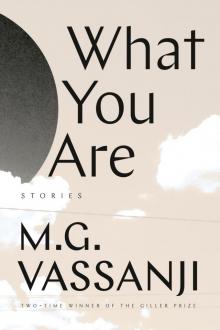 What You Are
What You Are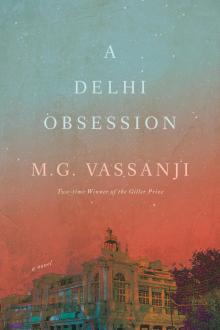 A Delhi Obsession
A Delhi Obsession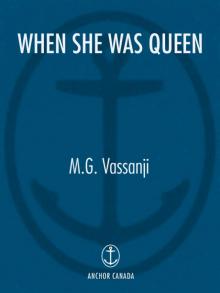 When She Was Queen
When She Was Queen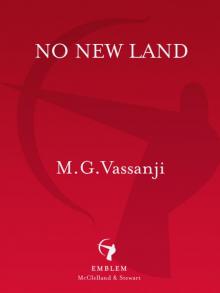 No New Land
No New Land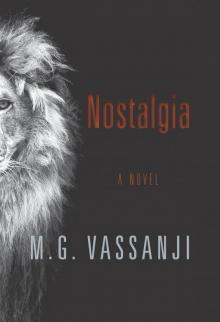 Nostalgia
Nostalgia Mordecai Richler
Mordecai Richler The Book of Secrets
The Book of Secrets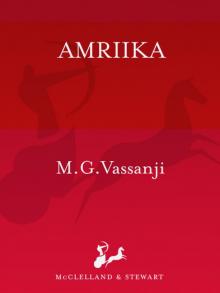 Amriika
Amriika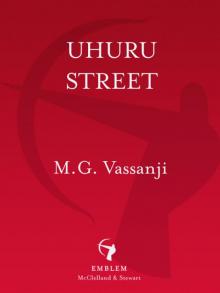 Uhuru Street
Uhuru Street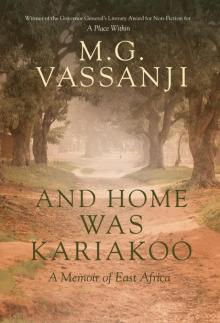 And Home Was Kariakoo
And Home Was Kariakoo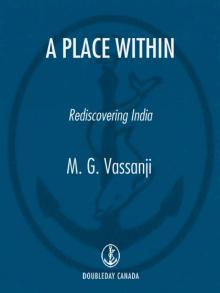 A Place Within
A Place Within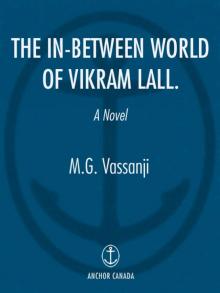 The In-Between World of Vikram Lall
The In-Between World of Vikram Lall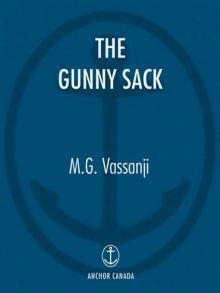 The Gunny Sack
The Gunny Sack